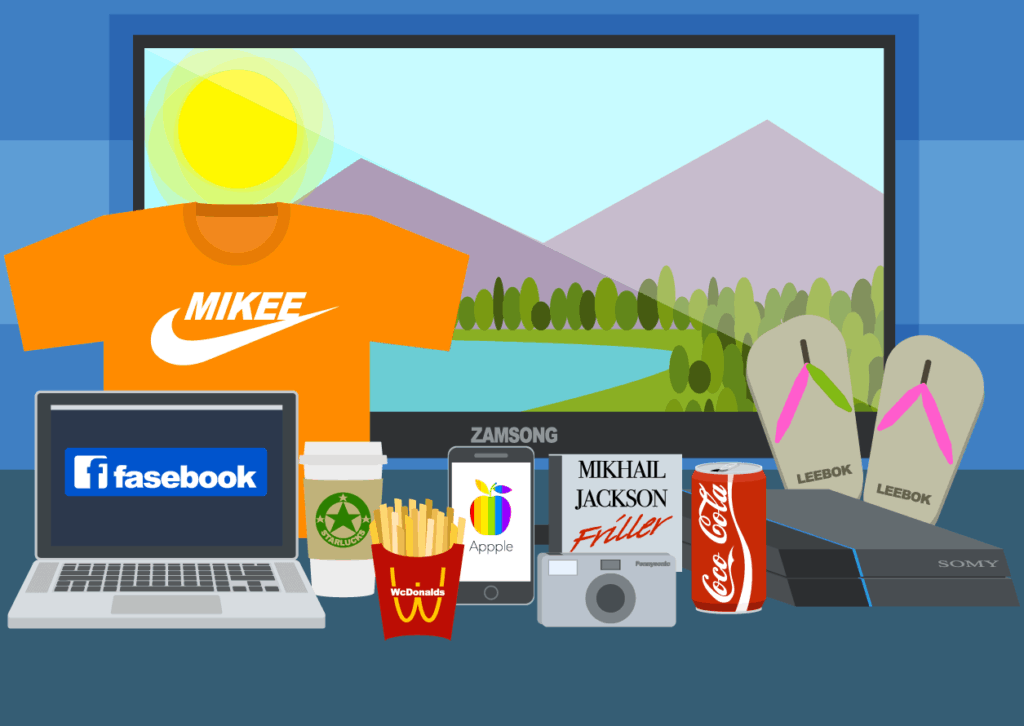Think back to being in school. There was always that one kid who would borrow your homework or copy your tests. Remember how lousy that felt? They ripped off your thoughts, ideas and work, and passed it off as their own, earning the fruits of your labor. Sure, they didn’t learn the same lesson or get the long-term benefits, but they got the grade.
As a small business owner, if you’re developing and manufacturing products, that feeling stings twice as much. If somebody imitates your product, it’s not only a bad experience for customers who thinks they’re getting an authentic product when it’s really nothing more than a second-rate knock off, it’s also bad news for your business. That buyer now thinks less of your brand, and you just lost a return customer.
Every year, counterfeit goods cost the global economy $350 billion in sales, and it wastes countless hours, where business owners try to chase down and put a stop to those hack-job operations.
So what can you, a small business owner, really do to fight counterfeiters?
First things first: Register your Brand.
Just like in school, let’s start with the basics. When you have an actual business plan and product (or product line) in place, the first step is trademarking and federal registration. That’s just the first grade of registering your brand, though. In today’s digital age, counterfeiters are sneaky and clever, and will try to capitalize on your brand online.
- Get social: Even if you (or your brand) aren’t active on social media (though you absolutely should be), sign up on every social channel and reserve your business’ name. This will help protect your intellectual property rights, and if you do come around on Twitter and Facebook, you’ll be ready to roll.
- Master your domain: Buy any web domains related to your business, brand, or products, so your customers don’t mistakenly end up on a knock-off website. Domains are seriously cheap (as low as a couple measly bucks), and you can set up website redirects so that if a customer enters the wrong URL, they’ll still end up on your site.
Lesson 2: Monitor and Enforce
Have you registered your brand name on all the online channels? Congrats! You’ve graduated the second step, where you’re now ready to monitor the web and enforce your rights as the owner of your business and intellectual property. Here’s where to look:
- The usual suspects: When looking for knock-off goods, start where people are already shopping. Common e-commerce sites like Amazon, eBay, AliBaba and Etsy are going to be the most common spots where you’ll find counterfeit versions of your products.
- Stay social: Remember when we said you should sign up for the main social media channels? Well, you should keep an eye on those channels as well, as some people may be promoting counterfeit goods. Tools like Hootsuite or SproutSocial allow you to create automated feeds of anybody who mentions your brand name online, so you can shut down any counterfeit sellers.
- Get help: At some point, maybe already, policing property rights will become too time consuming for your small business. Services like Brand Shield and Counterfeit Technology can help if you need to outsource some of the monitoring work.
Lesson 3: Share the Knowledge
You know your product inside and out, and you can spot a fake from a mile away. But if your customers see a knock-off on a different website for a cheaper price, they may think it’s just a good deal. Share the knowledge, and turn your customers into loyal experts:
- Create a brand guide: Publicly share products guidelines on your website to help customers identify authentic (and inauthentic) goods, along with a list of trusted retailers, so they know where to find the real deal when looking for your products.
- Show tattletales some love: Empower your customers with a way to report counterfeit products and websites that they find online. Whether it’s through social media or a form on your website, encourage people to inform you of this when it happens. You can also reward them with a genuine thank you note or gift of some kind. A loyal business earns loyal customers.
Protecting your business and customers from the counterfeit industry may seem like one big game of cat and mouse, but the long-term value is invaluable. The more you police the online world and maintain the integrity of your brand, the more value you can retain in your products. Your customers will know they’re getting what they pay for, and perhaps just as importantly, they’ll know they are getting it from you.

